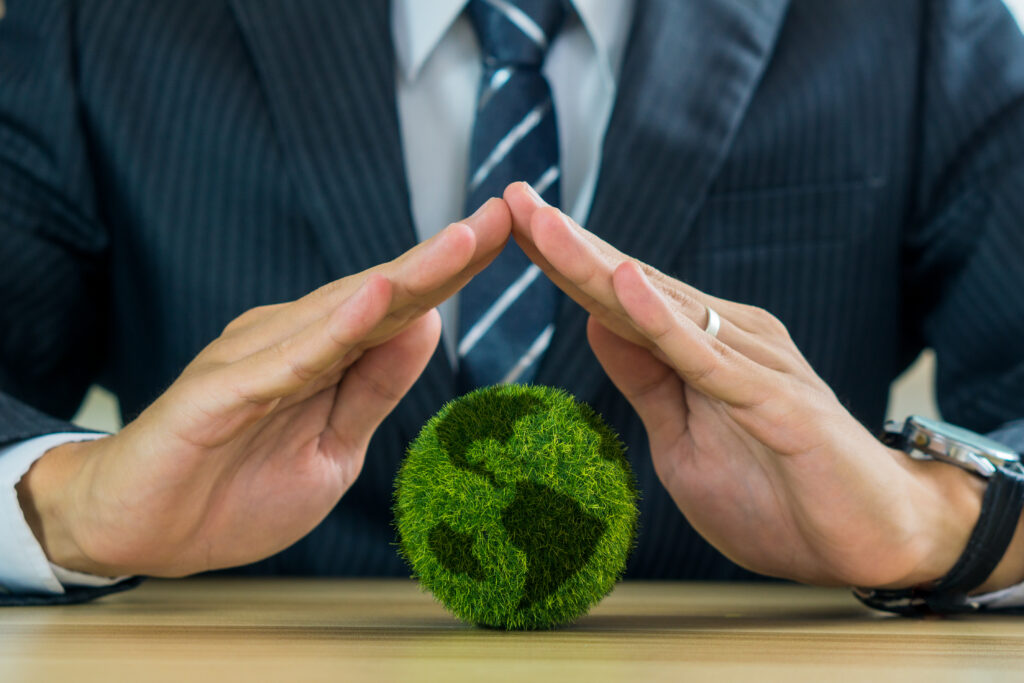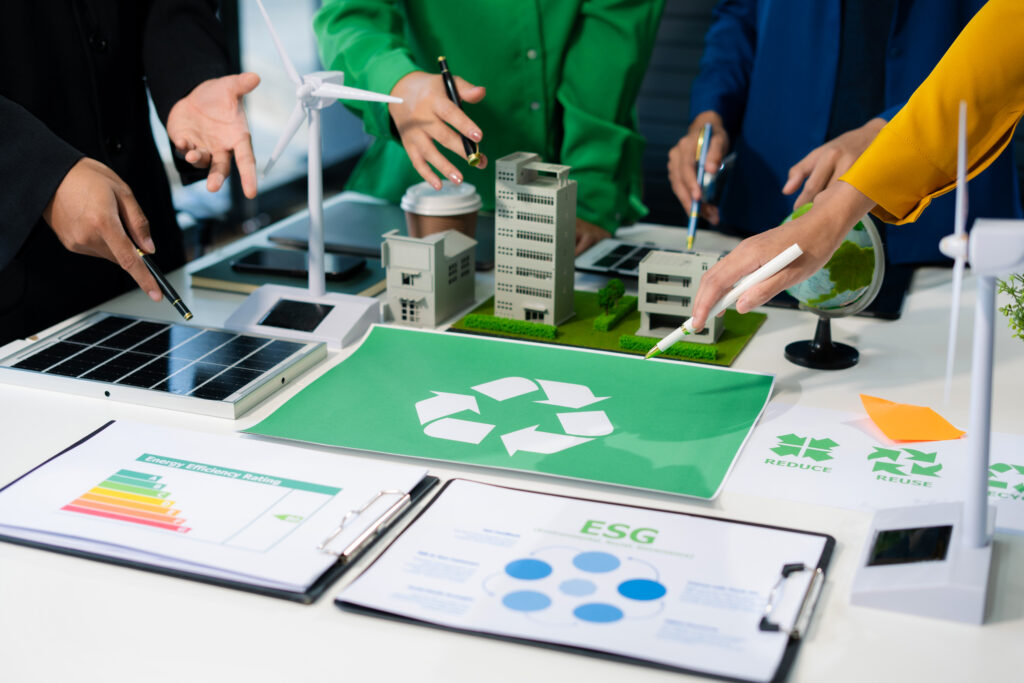
Raising awareness and empowerment
It's vital to raise awareness and educate employees about the importance of waste sorting. Implementing a clear, easy-to-understand waste sorting policy will enable recyclable waste, such as packaging, paper, cardboard and batteries, to be collected separately.
An eco-responsible approach can also include reducing waste at source by limiting the use of plastic, favoring recycled supplies and implementing composting solutions for organic waste.
The provision of specific, clearly identified garbage cans will encourage this sorting and prevent recyclable waste from ending up in the household garbage.
Setting up an internal policy
At the same time, it is also advisable to implement a policy of reducing waste at source. This can be achieved by encouraging the use of reusable rather than disposable products. For example, you can opt for reusable containers for employee meals, or install water fountains to replace plastic bottles.
In addition, encouraging employees to use refillable products, such as pens or dishwashers, will help limit waste production.
Recovering and reusing organic waste can also help to reduce waste in the workplace. For example, installing a composter will enable kitchen waste, peelings and food residues to be collected and transformed into compost, which can then be used as a natural fertilizer for the company's green spaces.
Similarly, composting green waste reduces the amount sent to incineration or landfill. It is also important to promote the use of sustainable, environmentally-friendly products within the company. This can be done by promoting the use of recycled products or by encouraging the reuse of materials.
For example, choose recycled office supplies, opt for washable wipes rather than disposable ones, or encourage the use of reusable cups instead of disposable plastic ones. These simple gestures can considerably reduce the amount of waste produced by your company.
Communication, a fundamental pillar
Finally, it's important to implement an internal communications policy aimed at raising employee awareness of the simple gestures that can help reduce waste. The use of stop-publicity stickers on mailboxes, encouraging the use of reusable bags rather than plastic ones, or promoting the reuse of packaging and cardboard are all actions that can be taken to limit waste production in the workplace.

European Week for Waste Reduction: A call to eco-responsible action
The European Week for Waste Reduction is an annual event (the 2024 edition of SERD will take place from November 16 to 24) organized by ademe (Agence de l'Environnement et de la Maîtrise de l'Énergie) to raise awareness of the importance of reducing the amount of waste we produce, and to promote more sustainable behavior in our daily lives.
The EWWR encourages individuals, communities and businesses to take concrete steps to reduce their environmental footprint. The EWWR is a unique opportunity to highlight the different aspects of waste management.
It places particular emphasis on sorting, composting and recycling, which are essential practices for reducing our impact on the environment.
The SEMD is an opportunity for citizens to become aware of the urgent need toact to reduce our ecological footprint, and to play an active part in preserving our planet.
It's an opportunity to make concrete commitments to manage our waste more responsibly, preserve our natural resources and contribute to the transition to a circular economy.
By reducing the amount of waste we produce and promoting its recovery, we can create a more sustainable future for future generations.

Environmental issues in the office
Every day, our actions at work have a significant impact on the environment.
Understanding the issues surrounding waste management in the office is essential to acting responsibly.
Corporate waste contributes directly to environmental problems such as pollution, soil degradation and overloaded landfill sites. By adopting eco-responsible practices, companies can not only help preserve the environment, but also save money, improve their brand image and create a healthier working environment.
How can you make the most of European Week for Waste Reduction (EWWR)?
Making the European Week for Waste Reduction (EWWR) a success in your company requires active, collective engagement . During the EWWR, numerous activities are organized, such as conferences, workshops, exhibitions and awareness-raising actions in schools, companies and communities.
Participants are encouraged to adopt simple but effective gestures to reduce their waste production, such as using reusable bags, bulk jars, reusable cups, refillable and washable products, and stopping paper advertisements in their mailboxes.
As an organization, you can propose activities involving all departments, such as awareness-raising workshops, quizzes, creative waste reduction competitions, or special collection days - fun initiatives that build team spirit while raising awareness of the importance of reducing waste.
In conclusion, reducing corporate waste is a key factor in limiting the environmental impact of our activities. By implementing simple measures such as raising awareness of selective sorting, reducing waste at source, composting organic waste, using sustainable products and promoting simple gestures within the company, it is possible to significantly reduce the amount of waste produced.
This eco-responsible approach not only helps preserve natural resources, but also contributes to the circular economy by promoting waste recovery and limiting its disposal in landfill or incineration.